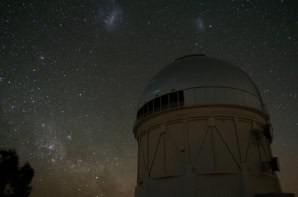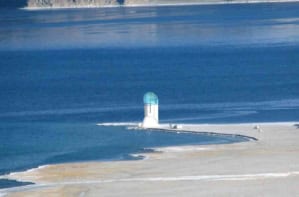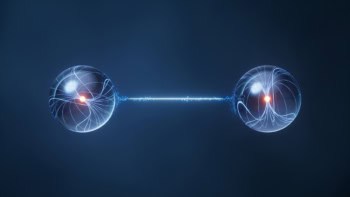The High Energy Stereoscopic System (HESS) in Namibia is one of three projects to share this year's €1m Descartes prize for research. The prize is awarded annually by the European Union to reward "outstanding scientific or technological results achieved through trans-national research". A total of 66 teams entered this year's competition.

HESS is a system of four gamma-ray telescopes designed to probe extreme cosmic events and put constraints on the nature of “dark matter”. In 2005, HESS detected eight new high-energy gamma ray sources – doubling the previous number on record. The EU praised HESS for having “revolutionized existing astronomical techniques and increased our knowledge and understanding of the Milky Way and beyond”.
The two other winners of the research prize were “Hydrosol”, a project that has developed a means of splitting water using sunlight to produce hydrogen, and “APOPTOSIS”, a project that has helped to understand cell death in diseases such as cancer and AIDS.
Meanwhile, the €275,000 Descartes prize for science communication has been awarded to five candidates. One of these has gone to a team of female scientists led by physicists Wendy Sadler from Cardiff University, who instigated the “Science Made Simple” project to tackle the problem of science apathy among 11 to 18 year olds in the UK and overseas. Other winners included Eoin Gill and Sheila Donegan – directors of CALMAST (Centre for the Advancement of learning of Maths, Science and Technology) – who were involved in the primary school science magazine “Eureka”, and Città della Scienza in Naples, the first science centre founded in Italy.




